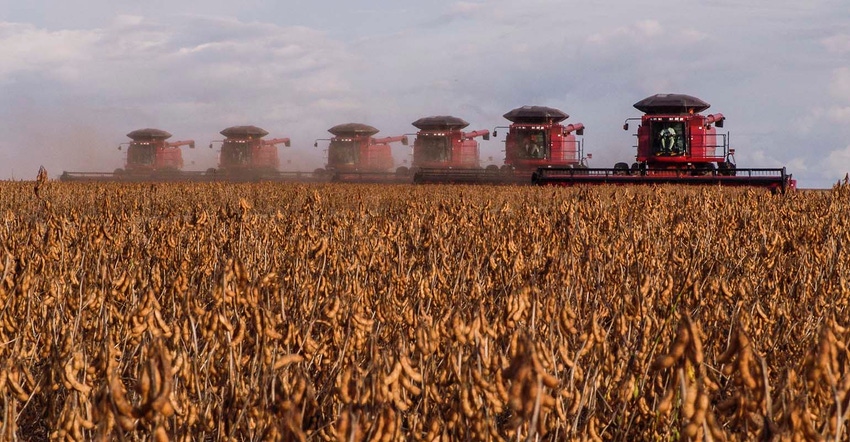
The Brazilians generally produce soybeans more cheaply than U.S. producers. That said, new fuel taxes decreed by a Brazilian administration desperate to meet budget requirements could help change that.
Counting on ag
With just about a month and a half to go before planting, the Brazilian administration has decreed tax increases on gasoline, ethanol and diesel. For farmers calibrating their planters and working on crop budgets, it could be a problem, but for a government facing huge shortfalls in income versus spending, the fuel tax increases are part of a plan to reduce the primary deficit to 2.1 percent or less of GDP. The tax increases are set to go into effect immediately and are expected to raise about $3.3 million in the last five months of 2017.
The Brazilian government needs the money. Bad. Services are already being cut: for example, the Federal Police has stopped issuing passports because there simply are no funds left for the activity.
Higher costs
As you can imagine, farmers weren’t entirely pleased with a fuel tax increase just ahead of planting. With the wholesale cost of diesel in his state going up by as much as $.55 per gallon, Mato Grosso Corn & Soy Association President Endrigo Dalcin told a reporter “We are world champions in terms of production costs, and every time you raise taxes, it ends up weighing on… our country’s competitiveness, aside from taking away income, which is already low this year.
“Right now we are in corn harvest, which uses a lot of fuel. This increase means directly stealing producers’ income.”

Endrigo Dalcin
Increases in diesel taxes will also affect transportation costs for soybeans, with most of the state’s harvest traveling 1,200 miles or more to southern Brazilian ports for export. Those bean exports - and the inputs needed to produce those beans - mostly get to Mato Grosso loaded on eighteen-wheelers that burn quite a bit of diesel.
One can expect those higher transportation costs to be passed on to producers.
“Practically 80% of the diesel fuel used in Mato Grosso is used for agriculture,” he added, according to local media. One industry observer said the diesel tax increase would amount to a 2.5% average increase in overall transportation costs.
Temporary stay
The good news for producers is that a federal judge in Brasilia has slapped a temporary stay on the fuel increases due to technical reasons. He said any fuel tax increase decree must be published in the official government law registry at least 90 days before taking effect. Since that would remove three of the potential five months remaining in 2017 for collecting income for the government, the administration is appealing the decision.
But any decision to appeal would simply put the fuel tax hikes off for, at the most, 90 more days.
The opinions of the author are not necessarily those of Farm Futures or Farm Progress.
About the Author(s)
You May Also Like






